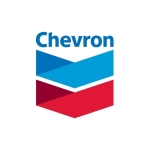(Bloomberg)
Exxon Mobil Corp. and Saudi Arabia’s Aramco, the world’s largest private and state-sector oil companies, led a pledge by 50 oil and gas producers at the COP28 climate summit to cut emissions from their own operations.
The deal is controversial given none of the companies are agreeing to reduce oil and gas production. But they are planning to stem releases of methane, one of the most dangerous greenhouse gases, to near zero by 2030 and stop routine flaring of natural gas.
The initiative was spearheaded by COP28 President Sultan Al Jaber, the chief executive officer of the Abu Dhabi National Oil Co., who’s invested political capital bringing the oil and gas industry into the climate fight. “We must do all we can to decarbonize the energy system we have today,” he told delegates.
The pact was the centerpiece of a day that saw a deluge of other announcements, from countries vowing to boost renewable energy to a plan to tackle pollution by heavy industry. The US pledged $3 billion in climate aid to poorer nations while the European Union said it would invest €2.3 billion ($2.5 billion) in the green transition overseas. The UAE is contributing $100 million to the methane-reduction effort.
While it was a show of force by a COP presidency keen to prove it can get things done despite questions about its climate-fighting credibility, it remains unclear how progress on all these promises will be tracked and how funding will be accessed.
The 50 members of the Oil and Gas Decarbonization Charter account for about 40% of global oil production. They include 29 national oil companies, marking progress in a sector that’s been slow to act on methane given a lack of pressure from regulators and investors. The targets won’t be binding, but signatories will have to submit a plan to meet them by 2025.
Among international oil companies, Shell Plc, BP Plc, TotalEnergies SE and Occidental Petroleum Corp. signed up. The most notable absences were Chevron Corp. and ConocoPhillips.
The list of national oil companies includes Brazil’s Petrobras, Nigeria’s NNPC and Kazakhstan’s KazMunaiGaz. China’s largest oil and gas companies haven’t joined.
For 31 of the companies, it was their first time making such a commitment to reach net-zero methane, Al Jaber said.
Strong Reactions
To some activists at COP, oil companies are little more than climate criminals, bearing much of the responsibility for the crisis of global warming. Al Jaber argues that even as fossil fuels are phased out, oil and gas will remain part of the energy system for decades to come and making them as clean as possible helps the cause.
More than 300 climate organizations from across the world published a letter strongly criticizing the effort. It urged the COP28 presidency to drop the initiative and instead focus on securing a legally binding package to phase out all fossil fuels.
“We don’t have time to waste with more pledges and initiatives with fancy names,” said Cansin Leylim Ilgaz, associate director of global campaigns at 350.org, a movement seeking to end the use of dirty fuels. “We need a fast, fair, and equitable fossil fuel phase out that does not rely on dangerous distractions.”
Darren Woods, the CEO of Exxon Mobil, was among industry bosses who traveled to COP to join the charter, the first time the leader of America’s largest oil company has appeared at a global climate summit.
“The good news is, with this COP there is the desire to try to bring all the constituents together to try to solve this hard, challenging problem,” Woods said in an interview.
Exxon has long resisted targets that would require it to cut production even as rivals such as Britain’s BP and France’s TotalEnergies have sought to align their business plans with global climate goals.
This plan is more palatable because it says nothing about how fast global oil and gas production should fall. Both companies have said that the fossil fuels will remain vital to the global economy for the foreseeable future.
The signatories will also commit to almost zeroing out carbon pollution from their operations, known as scope 1 or 2 emissions, by 2050. That entirely excludes scope 3 emissions, which come from burning the fossil fuels they produce and make up the vast majority of their climate damage.
Enforcement Plan
The oil charter will be buttressed by a transparency and accountability initiative with at least $40 million of support.
The program, also announced Saturday, is a collaboration by the International Energy Agency, Environmental Defense Fund, the UN Environment Programme, the International Methane Emission Observatory and RMI, with support from Bloomberg Philanthropies.
Bloomberg Philanthropies is the philanthropic organization of Michael Bloomberg, the founder and majority owner of Bloomberg News parent Bloomberg LP.
Data from the program — including surveillance by the MethaneSAT satellite set to launch next year — is meant to arm governments, gas buyers and the public with information about emissions that can be used to hold companies accountable.
Project collaborators estimate that if fully implemented, the oil company commitments under the charter would have roughly the same impact on the global temperature rise in 2050 as immediately halting emissions from every single car on the road today. Better monitoring and tracking is critical for ensuring companies follow through, said Fred Krupp, head of the Environmental Defense Fund.
“We’re not simply relying on better industry reporting as the guarantor that commitments will be met,” Krupp said. “This is defense in depth.”
(Updates with other announcements in third paragraph)
Share This:



